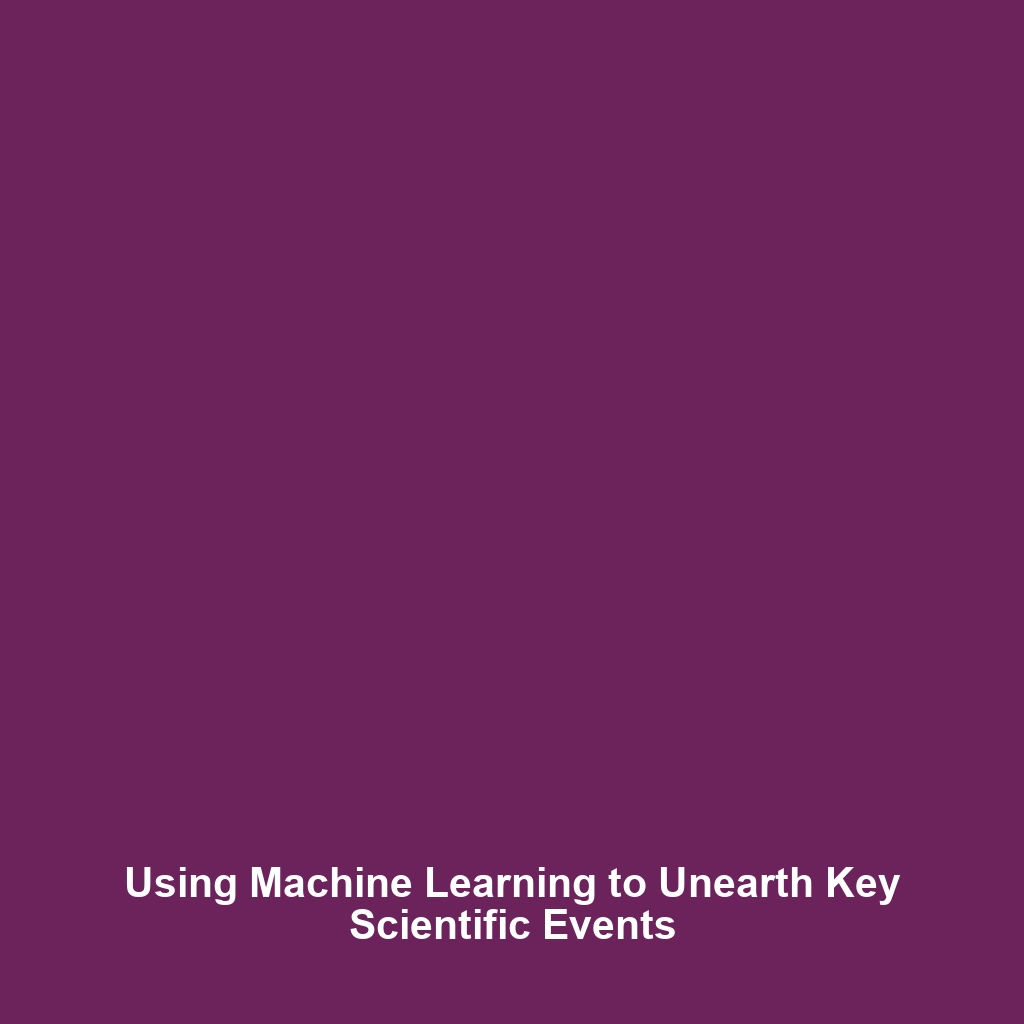Machine Learning Techniques in Identifying Important Events within Big Data
Introduction
In the era of Big Data in Science, machine learning techniques play a pivotal role in sifting through vast datasets to identify critical scientific events. These events, such as the groundbreaking discovery of the Higgs boson, exemplify the intersection of advanced algorithms and massive data processing. Machine learning methods allow researchers to extract meaningful insights from enormous quantities of data, driving advancements across various scientific disciplines and enhancing our understanding of complex physical phenomena. This article delves into the methodologies, applications, and challenges faced in leveraging machine learning techniques to unearth significant milestones in scientific research.
Key Concepts
Understanding the relationship between machine learning and Big Data is essential for grasping how significant discoveries are made in the scientific community. Key concepts include:
- Data Mining: Techniques that uncover patterns and insights from large datasets.
- Predictive Modeling: Algorithms used to forecast outcomes based on historical data.
- Pattern Recognition: The ability of machine learning models to identify and categorize input data.
- Neural Networks: Computational models inspired by the human brain, crucial for processing complex data forms.
These principles underpin the usage of machine learning to analyze scientific data, making it a vital component of Big Data in Science.
Applications and Real-World Uses
Machine learning techniques have found extensive applications in various scientific fields through their capabilities to identify significant events. Some notable examples include:
- Particle Physics: In projects like CERN, machine learning is employed to recognize particle collisions relevant to discoveries such as the Higgs boson.
- Astronomy: Analyzing data from telescopes to detect exoplanets and celestial phenomena.
- Biology: Identifying genetic mutations linked to diseases from vast genomic datasets.
These applications highlight how machine learning techniques enhance the understanding of complex data patterns within the domain of Big Data in Science.
Current Challenges
While the potential of machine learning in identifying important events is vast, several challenges remain:
- Data Quality: Inaccurate or incomplete data can lead to misleading interpretations.
- Computational Resources: The processing power required for handling large datasets can be immense.
- Algorithm Bias: Machine learning models can perpetuate biases present in the training data.
- Interpretability: Many complex models act as “black boxes,” making it difficult to interpret their decisions.
Addressing these challenges of machine learning techniques is crucial to improving their reliability and effectiveness in scientific applications.
Future Research and Innovations
The future of machine learning in identifying significant events within Big Data in Science is poised for groundbreaking innovations:
- Enhanced Algorithms: Development of new algorithms capable of processing intricate patterns more efficiently.
- Integration with Quantum Computing: Leveraging quantum technology to enhance data processing speeds.
- Improved Interpretability: Focus on making machine learning models more transparent and understandable to scientists.
These advancements are expected to pave the way for unprecedented discoveries and insights in scientific research.
Conclusion
In summary, machine learning techniques have become integral to identifying important scientific events such as the Higgs boson within the vast datasets that characterize Big Data in Science. By understanding the applications, challenges, and future innovations in this space, researchers can better leverage these technologies to enhance scientific discovery. For more insights into the intersection of data science and research, explore our articles on Artificial Intelligence in Science and Data Analytics in Research.
